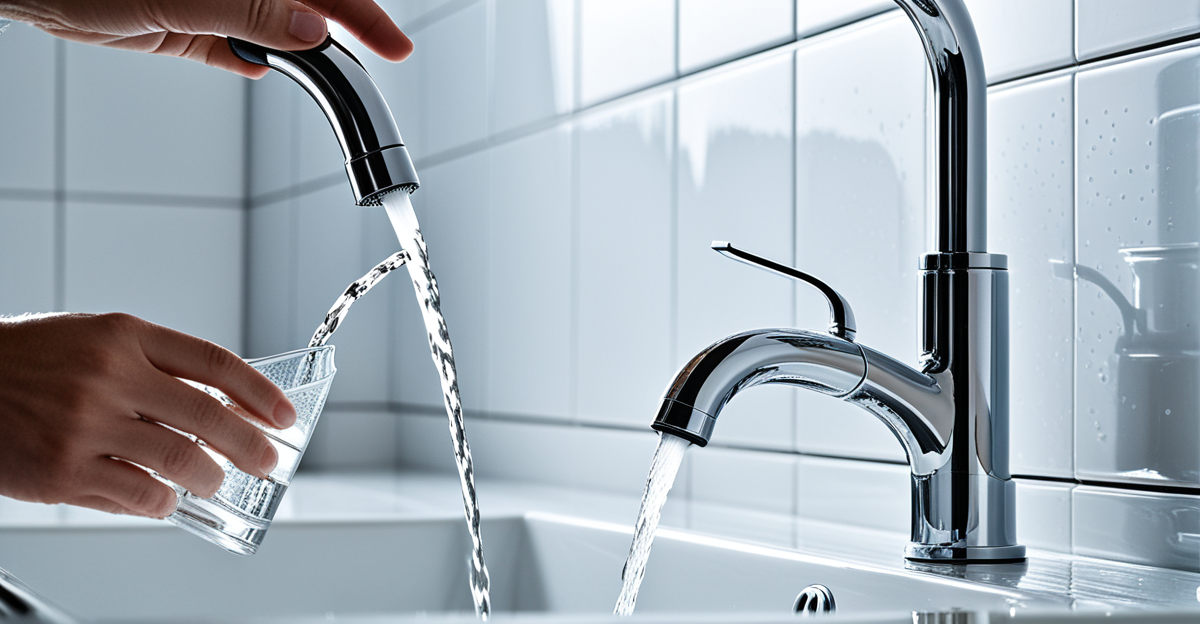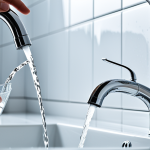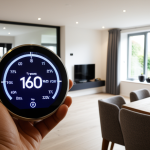Understanding Hard Water Challenges in the UK
Hard water UK is a widespread issue affecting many households due to high mineral content, especially calcium and magnesium, in tap water. These minerals cause water hardness effects such as scale buildup on taps, appliances, and plumbing systems, leading to reduced efficiency and potential damage. Common symptoms include spots on dishes, decreased soap lathering, and clogged pipes.
Tap water issues linked to hard water also impact health indirectly by promoting bacterial growth in scale deposits or irritating sensitive skin during washing. Appliances like kettles, washing machines, and dishwashers can suffer shortened lifespans without treatment due to mineral accumulations.
Also to read : Discover stunning skylight options for pitched roofs
Water hardness levels vary regionally across the UK, with areas such as the South East typically experiencing harder water compared to parts of Scotland and Wales. Understanding these variations helps determine the urgency and type of treatment required. Awareness of hard water UK challenges allows homeowners to address both the visible symptoms and long-term appliance concerns effectively, ensuring better maintenance and comfort in daily water use.
Best Filtration Solutions for Hard Water in the UK
Choosing the best filtration systems UK depend on addressing specific hard water filters needs caused by mineral-rich water. Common filtration technologies include tap-mounted filters, under-sink units, and whole-house water softeners UK homeowners rely on. Each type targets water hardness effects differently.
Also to read : Mastering co2 detector placement for optimal safety in uk terraced homes: the definitive guide
Tap-mounted filters are popular for their ease of installation and affordability, handling moderate mineral content effectively. Under-sink filters offer higher filtration capacity and discreet placement, making them ideal for frequent use in kitchens. Whole-house water softeners UK homeowners prefer provide comprehensive protection, preventing scale buildup throughout all plumbing and appliances.
When looking for superior hard water filters, checking certifications such as NSF/ANSI standards ensures reliable performance. UK-specific models often consider regional water hardness variations, optimizing mineral reduction without removing beneficial elements. Brands leading the market emphasize durability, easy filter replacement, and water efficiency.
Overall, selecting the best filtration system requires balancing budget, household size, and specific tap water issues caused by hardness. Properly matched systems enhance water quality, extend appliance life, and improve daily water use comfort across the UK.
Understanding Hard Water Challenges in the UK
Hard water UK causes a range of visible water hardness effects that disrupt everyday activities. Common symptoms include limescale deposits on taps and in kettles, spotting on dishes, and soap that fails to lather properly due to minerals interfering with cleaning agents. These tap water issues reduce appliance efficiency and can lead to costly repairs.
Health impacts from hard water are mostly indirect. Scale buildup in plumbing provides breeding grounds for bacteria, potentially affecting water quality. Hard water can also irritate sensitive skin, exacerbating conditions like eczema. Appliances such as washing machines and dishwashers face mineral deposits that shorten their lifespan unless properly treated.
Water hardness levels vary significantly across the UK. For example, areas like London and the South East tend to have very hard water, while Scotland and parts of Wales often experience softer water. Knowing these regional variations enables homeowners to assess the severity of tap water issues and decide on appropriate solutions to mitigate water hardness effects in their homes.
Understanding Hard Water Challenges in the UK
Hard water UK presents distinct water hardness effects that disrupt daily life. Common symptoms include persistent limescale on taps and fixtures, white spots on dishes, and soap that doesn’t lather well, all reflecting mineral interference with water’s natural properties. These tap water issues not only impact household convenience but also reduce the efficiency of appliances like kettles and washing machines as scale accumulates internally.
Health-related consequences arise indirectly. Mineral deposits can foster bacterial growth in pipes, compromising water quality. Additionally, hard water often irritates sensitive skin, worsening conditions such as eczema. Without treatment, appliances face faster wear due to mineral buildup, leading to costly repairs or replacements.
Water hardness levels vary markedly across the UK. Regions like the South East experience notably high hardness, intensifying tap water issues, while Scotland and parts of Wales generally report softer water. Understanding these regional differences is crucial for identifying the severity of water hardness effects and selecting appropriate mitigation measures tailored to local conditions.
Understanding Hard Water Challenges in the UK
Hard water UK presents persistent tap water issues that affect household routines and appliance functionality. Typical symptoms include stubborn limescale on fixtures, white spotting on dishes, and reduced soap performance caused by mineral interference. These water hardness effects not only diminish cleaning efficiency but also contribute to premature wear of appliances such as kettles, washing machines, and dishwashers.
Beyond inconvenience, untreated hard water can lead to health concerns through indirect pathways. Mineral deposits encourage bacterial growth within pipes, potentially compromising water safety. Sensitive skin may also suffer irritation or worsening of conditions like eczema due to mineral-rich water exposure.
Regional differences in water hardness are significant across the UK. Southern England, including the South East and London, experiences some of the hardest water, resulting in intensified tap water issues. Conversely, Scotland and parts of Wales generally have softer supplies, reducing the severity of these water hardness effects. Understanding these geographical variations is essential for homeowners to accurately assess their unique challenges and determine suitable solutions to protect both health and appliances effectively.
Understanding Hard Water Challenges in the UK
Hard water UK causes visible water hardness effects such as persistent limescale buildup on taps and appliances, white spots on dishes, and reduced soap lathering. These symptoms stem from high mineral concentrations, mainly calcium and magnesium, that alter tap water properties. Besides daily inconvenience, these minerals accelerate wear in dishwashers, kettles, and washing machines, leading to costly repairs or replacements.
Health concerns linked to untreated hard water are mostly indirect. Scale deposits in plumbing create an environment favorable to bacterial growth, potentially affecting water safety. Moreover, sensitive skin can react adversely, exacerbating conditions like eczema after exposure to mineral-rich tap water.
Hard water UK varies regionally; the South East and London experience the highest hardness, intensifying tap water issues, while Scotland and parts of Wales typically have much softer water. Understanding these geographical variations helps households gauge the severity of water hardness effects and decide on suitable treatments, ensuring effective management of both appliance longevity and personal health concerns.







